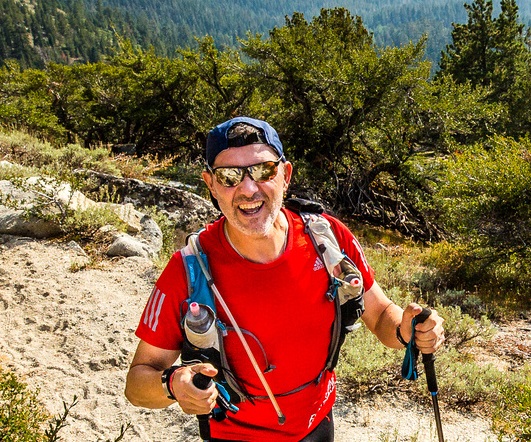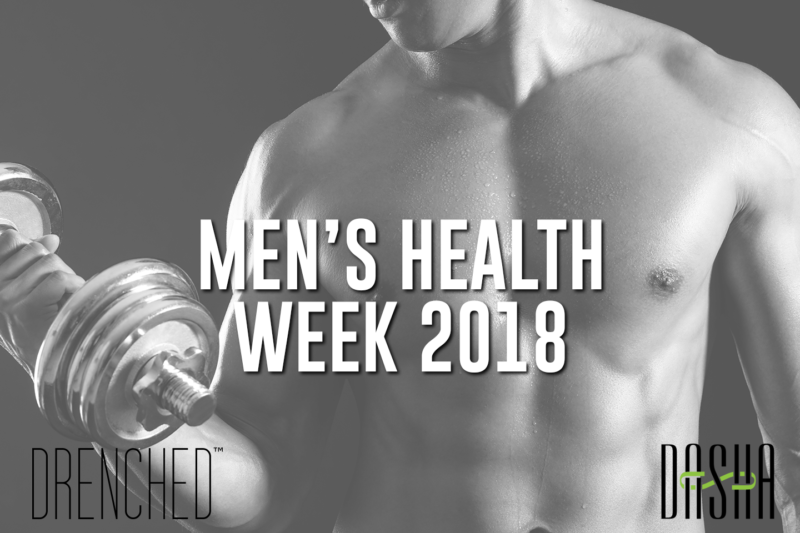
Ramon Bermo, Director and Head Coach DetermiNation
This week (June 11th – 17th) is Men’s Health Week! The goal is to raise awareness about health issues that disproportionately affect men and encourage them to take control of their health, whether that means eating consciously or learning to manage stress. In honor of the occasion, I interviewed some of the most powerful and inspiring guys I know. Some are in the health and wellness industry, some are not, but all have motivating stories and sage advice to share.
Ramon Bermo is the head coach for the American Cancer Society DetermiNation program, which is a nationwide event program where every mile run helps save lives from cancer. Personally, he has completed dozens of marathons, Ironman triathlons and multiple ultra marathons in addition to hundreds of other races varying in distances.

Throughout my years with DASHA® I have remained constant with ACS. I believe in good leadership and Ramon is certainly the type of coach you want taking you to the finish line. Ramon has invested years of his time to ensure that all of the DetermiNation participants, regardless of their location, gain access to the very best training and support possible.
SHANNON: Why is health and wellness important to you?
RAMON: It’s just who I am, I’ve been an athlete my entire life. When I was younger, I was very competitive and was all about the challenge. As I got older, I learned more about the science behind health and wellness. It became more about the lifestyle and the social aspect. I became more competitive with myself rather than with others. I can tell you that in my whole adult life I have yet to miss one day of work due to illness.
What about health and wellness do you think is a common misconception particularly for men?
I personally believe the most important muscle we need to work is the heart as it’s the ‘engine‘ that leads our daily lives and feeds energy to the rest of our body. I also think a common misconception among men, particularly young ones, is that looking good equals being healthy. And by looking good I mean building muscle, six packs etc.. Many of them don’t put attention to their ‘engine’ and their diet. So while they may look good on the outside, they don’t look so good on the inside.
How did you start working with the American Cancer Society?
I’ve been with the American Cancer Society (ACS) almost 9 years. I joined when ACS started getting involved in the endurance charity world. I used my experience with other non-profits and my experience as a coach to build what the DetermiNation program is now. DetermiNation is a very successful and meaningful program making a difference in both the lives of those dealing with cancer and in the lives of those who join us run for others. It has helped thousands achieve their personal race goals by giving participants access to professional training and an unparalleled community of support.
How is working with charity teams different than working with non-charity teams?
I love working with my runners. There are no egos, no big personalities and they all understand that by joining DetermiNation their miles are more than just completing an event. Everything they are working towards is for a team. It’s incredibly rewarding because I‘ve been able to coach a lot of first timers, who put all their heart and soul into it. Non-charity teams feel different because sometimes those personal goals and egos stop them from listening to their coach.
What are the biggest mistakes you see people make when training for a race?
I think the number one mistake people make is running too many of their training miles faster than they should.
What are your tips for dealing with injuries?
It’s all about being proactive. Incorporating cross training into one’s training calendar is key. It’s all about listening to your body and knowing when to hold back, when to modify or when to skip a workout.
Do you have any nutrition tips for male runners who are training for an upcoming race?
Nutrition is key for top performance. It’s not just about what we’re eating, but when we’re eating it, too. What we eat before, during and after a workout will have a direct impact on our training. If a runner doesn’t eat the right foods after an intense workout, they’re slowing down the recovery process. By slowing down recovery, the runner is decreasing the chances of their body to be as ready as it could be for the next workout.
Should men incorporate strength training into their race training to improve their fitness level and time?
Yes, and especially if they are over 40. That being said, the reps and weights would vary depending the type of race they are running. Training for a fast 5K would require a different approach to strengthening versus let’s say somebody training for a marathon.




